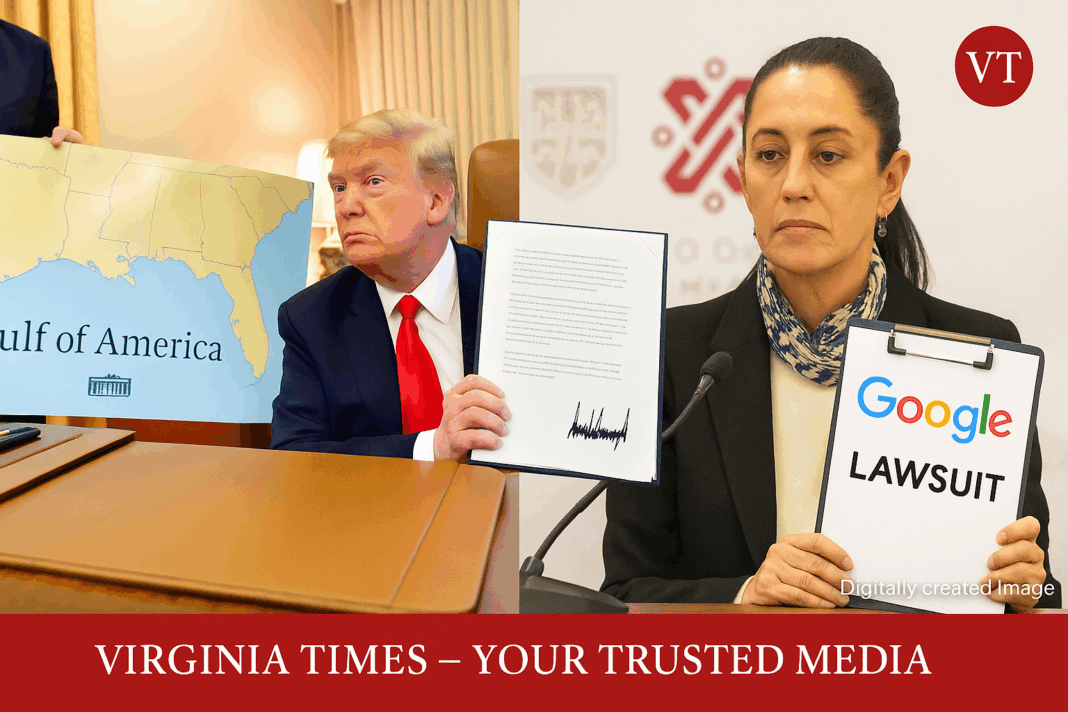In a move that underscores the growing tension between geopolitical sovereignty and corporate autonomy in the digital age, the government of Mexico has filed a formal lawsuit against Google over the platform’s adoption of the term “Gulf of America” for U.S. users—a name introduced by an executive order from President Donald Trump earlier this year. The dispute, now playing out in courts and across social media platforms, reflects deeper questions about the authority of governments over global tech giants and the shifting landscape of digital cartography.
The Origin of the Controversy
The spark was ignited on January 20, 2025, when President Trump signed Executive Order 14172, instructing all federal agencies to refer to the “Gulf of Mexico” as the “Gulf of America” in official U.S. documentation. The order, rooted in a nationalist vision to “restore pride in American waters,” led to updates across federal platforms and influenced mapping services including Google Maps and Apple Maps, which began showing the new name to U.S.-based users.
Trump’s decree, while symbolic in tone, had tangible ripple effects. It triggered outrage in Mexico and other regional stakeholders like Cuba, who see the Gulf as a shared and internationally recognized body of water. Mexico’s President Claudia Sheinbaum, addressing the issue in her May 9 press conference, confirmed that her administration had filed a lawsuit against Google. Sheinbaum argued that the unilateral renaming infringed on Mexico’s territorial rights and that global platforms should reflect international standards, not just national mandates. Watch her press conference on X.
Google’s Stance and Digital Dilemma
Google has defended its labeling policy, stating it follows “official sources and local governmental guidelines” depending on the user’s location. In the case of U.S. users, the platform updated its maps in accordance with the White House directive, while continuing to use “Gulf of Mexico” for viewers in Mexico and most of the world. Company representatives have not issued a formal statement in response to the lawsuit, but insiders suggest the tech giant is unlikely to reverse course without a legal mandate.
The legal filing, while not yet public in full, reportedly asks for a restriction on the use of “Gulf of America” to areas within U.S. territorial waters (22 nautical miles) and the reinstatement of “Gulf of Mexico” in shared or international waters. Mexico’s claim echoes larger concerns about digital sovereignty and the role of transnational corporations in shaping perceptions of geography and identity.
U.S. Legislative Push
Meanwhile, the U.S. House of Representatives—under Republican control—passed the “Gulf of America Act” (H.R.276) on May 8, by a narrow margin of 211-206. Spearheaded by Rep. Marjorie Taylor Greene (R-Ga.), the bill seeks to enshrine Trump’s executive order into law, mandating the use of the new name across all federal documents, signage, and systems.
“This is about pride, about patriotism,” Greene wrote on X, formerly Twitter, where she posted a photo featuring memorabilia including hats and golf balls labeled “Gulf of America.” Her post quickly went viral, drawing both applause and sharp criticism. Some users mocked the move as “symbolic overreach,” while others hailed it as a necessary assertion of national identity.
The bill now faces steep hurdles in the Democrat-controlled Senate, where opposition has already begun to mount, citing the economic, diplomatic, and logistical implications of the renaming.
Public Response and Social Media Echoes
The renaming controversy has resonated across Latin America and the United States, generating intense debate on social media. On X, user @gildogarzamx posted: “Sheinbaum exige que Google obedezca sus decretos… desde Silicon Valley,” questioning whether a U.S. company can—or should—bend to foreign government demands. Others, like @bluhue123, have expressed support for Sheinbaum, arguing that “Mexico is standing up to digital imperialism.”
The broader public sentiment seems to reflect the dilemma of modern geopolitics: where state authority collides with private digital infrastructure. Can a single government dictate how a global tech company labels a body of water used by multiple nations? Is it reasonable for a country to expect its territorial sensitivities to be honored on platforms headquartered elsewhere?
A Journalist’s Take: Symbolism vs. Substance
This dispute goes beyond cartographic semantics. It speaks to an era where maps are not just static representations of terrain but dynamic, political tools shaped by software code and server location. The name of a gulf might seem trivial, but the power to name is also the power to define.
Mexico’s legal challenge, while perhaps difficult to enforce in U.S. courts, makes a powerful point: that digital platforms, while private, play a quasi-public role in mediating global knowledge. Meanwhile, the U.S. move to legislate the renaming may rally nationalist support but risks appearing performative on the international stage, especially at a time when diplomatic cooperation remains critical in an increasingly fragmented world.
The outcome of this case may not just determine how a map is labeled. It may set precedent on how far digital cartography must go to reflect the plural realities of an interconnected globe.
With inputs from AP News, Spectrum Local News, BBC, The Guardian, New York Post, WhiteHouse.gov, and Congress.gov
A global media for the latest news, entertainment, music fashion, and more.














